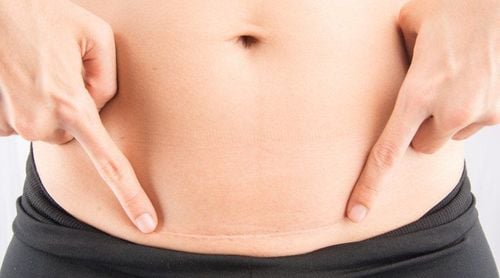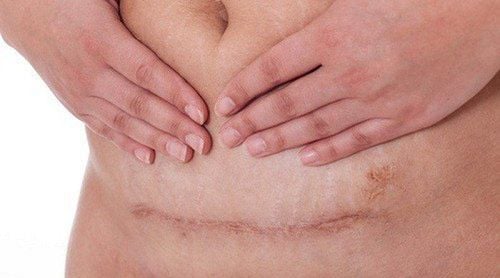This is an automatically translated article.
Postpartum health care needs attention in many aspects such as hygiene, eating, exercising, resting to help the mother recover after giving birth and let the baby have the best start.
1. Postpartum period
After giving birth, a woman's body needs some time to recover and return to normal, called the postpartum period.
During this period, women need to know how to take care of themselves after giving birth and recognize danger signs to ensure the health of both mother and baby.
Trắc nghiệm: Những điều cần biết về kiêng cữ sau sinh
Sau sinh, cơ thể sản phụ sẽ có rất nhiều sự thay đổi, việc thực hiện tốt các kiêng cữ sau sinh và bổ sung đầy đủ các chất dinh dưỡng cho cơ thể sẽ giúp ích rất nhiều trong quá trình hồi phục sức khỏe. Bài trắc nghiệm dưới đây sẽ giúp mọi người có cái nhìn tổng quan về kiêng cữ sau sinh và thực hiện sao cho phù hợp nhất.The following content is prepared under supervision of Thạc sĩ, Bác sĩ y khoa, Tạ Quốc Bản , Sản phụ khoa , Khoa Sản phụ khoa - Bệnh viện Đa khoa Quốc tế Vinmec Phú Quốc
2. How long does the postpartum period last?
The postpartum period usually lasts about 6 months.
3. What should be paid attention to in postpartum health care?

3.1. Incision care After 3-5 days, the skin incision will heal.
If the incision is sewn with the standard, there is no need to cut the thread.
If the incision is sewn with non-absorbable sutures, the sutures will usually be cut between the 5th and 7th day after surgery (depending on the doctor's instructions).
At this time, the mother can wipe her body or take a quick bath with warm water, then dry the whole body and the incision. Pay attention not to cover the incision, do not arbitrarily apply antiseptic solutions to the incision without the permission of the doctor.
3.2. Menstruation and discharge If a woman is exclusively breastfeeding, her period will usually begin after 6 months or later, but if she does not breastfeed or breastfeeds incompletely, her period will return in 4-6 weeks. after birth.
During the first few weeks, you will see some fluid (called a discharge) coming out of your mouth. The discharge is usually red for 4 days immediately after birth, then turns pink until about the 9th day postpartum. From about the 10th day on, the discharge turns to dark brown, then becomes lighter and lighter in color and disappears, usually 2 to 4 weeks after birth.
3.3. Maintain hygiene During childbirth, the pregnant woman's body produces a lot of sweat, so it is necessary to bathe and wash her hair for 3-4 days after giving birth. Bathrooms must be airtight and shower with warm water; Do not soak in the tub. Take a quick shower from 5 to 10 minutes, after bathing, you must dry your body quickly and put on clothes. Do not shower and wash at the same time.
Postpartum women also need to pay attention to keeping the anal area clean. During this time, do not douche or put anything in the vagina, should not have intercourse if there is still discharge, change tampons often to avoid infection.
3.4. Breastfeeding Depending on the mother's health condition, it is possible to breastfeed after 30 minutes or an hour later. With women under general anesthesia, breastfeeding time can be longer, about 6 hours after surgery.
Colostrum is already in the mother's breast, contains a lot of energy and antibodies. Colostrum is pale yellow and thicker than later milk, helping the baby fight infections. In the first few days after birth, the baby's stomach is very small, so the mother should actively feed the baby colostrum and suckle many times to have enough energy for the baby.
Breastfeed as soon as possible. Breastfeeding early and several times a day will help mothers increase hormone secretion, stimulate milk glands to work harder, help mothers produce more milk and not be afraid of losing milk.
Usually each feeding of a baby will last from 10 to 15 minutes. However, some babies want to feed for longer, about 20 minutes. When the baby has received enough milk, the baby will release the breast on his own, satisfied and sleep very well.
3.5. Diet Maternity has just undergone a labor, consumes a lot of energy, so it is necessary to have a scientific and nutritious diet to help recover quickly and have enough milk for the baby. suck.
Diet of pregnant women after giving birth should be noted:
Pregnant women should not eat anything within the first 6 hours after surgery. Pay attention to the principle that pregnant women will eat from liquid to solid, eat rice when deflated. In the first day after giving birth, women should drink filtered water, sugar water, and eat diluted porridge. After farting, pregnant women eat as usual, increase nutritious foods such as meat, fish, eggs, milk..., Avoid spices with stimulants such as chili, coffee, tea will affect affect lactation. Instead, the mother needs to drink enough water, about 2 liters of water per day, eat well cooked, increase green vegetables, fruits and drink more fruit juice, milk... to avoid constipation. Pregnant women should eat nutritious foods such as meat, fish, eggs, milk, fruits..., avoid spices with stimulants such as chili, coffee, tea, which will affect lactation. 3.6. About the mode of life Exercise Movement after childbirth is essential to help the uterus contract well to avoid postpartum bleeding, to avoid fluid retention, and to avoid embolism. In the first few days after giving birth, the mother can get up from the bed and walk gently in the room.
After that, depending on the health status, postpartum mothers can step out of bed, practice walking again to help the body's normal functions recover faster, reduce the risk of complications after surgery ( such as embolism, embolism, etc.).
For women who have experienced a difficult labor before deciding to have a cesarean section or lose a lot of blood at birth, they need to rest more.
Rest Maternity has just gone through a labor, consuming a lot of energy, losing a lot of blood. Therefore, the postpartum rest is very important, good for the mother's health both physically and mentally.
Getting enough sleep for mothers is very important. Family members need to help take care of the baby so that the mother can sleep. On average, a mother sleeps about 8 to 9 hours a day. During sleep, a woman's body will regain health, energy and help with good lactation. It also helps the mother avoid stress and postpartum depression.

4. Baby Care
Here are some common problems with newborn care:
Loose stools Usually 6-12 hours after birth babies will pass dark green meconium, but premature babies can be later . This dark green meconium usually lasts 2-3 days after birth. Later, the meconium will slowly change its color from pale to yellow.
Newborns who are breastfed often will have 5-6 bowel movements/day. Stools will be loose or slightly viscous, mauve-yellow in color, with no significant odor and no foam.
Children stay up at night and sleep during the day Newborn sleep is a matter of great concern to mothers, because it has a direct impact on the health of the child. Newborns change the environment from the womb to the natural environment outside, and at the same time, they cannot distinguish day and night, so some babies will sleep more during the day and wake up more at night.
Newborns sleep almost all day and night, only waking up to feed about every 2-3 hours. Usually, it is not necessary to wake an infant to feed, but it is not recommended that a baby sleep for more than 3 hours without feeding.
Physiological jaundice
The majority of newborns present with jaundice within 1 week of birth (20-30% of term infants and 80% of preterm infants). This is a normal physiological phenomenon, occurs when the fetal red blood cells are destroyed to be replaced by mature red blood cells. When red blood cells are broken, large amounts of bilirubin, a yellow pigment, are released into the bloodstream, causing jaundice.
Most cases of neonatal jaundice are mild and resolve spontaneously in 7-10 days, when the bilirubin is eliminated in the stool and urine. However, there are some cases of severe jaundice caused by bilirubin getting too high and seeping into the brain (medically called nuclear jaundice). This condition is very dangerous, can make the child coma, convulsions, lead to death or permanent psychomotor sequelae.
Please dial HOTLINE for more information or register for an appointment HERE. Download MyVinmec app to make appointments faster and to manage your bookings easily.














